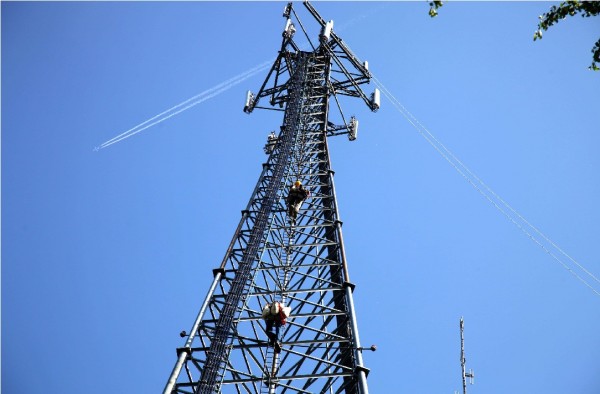By Lynn Palec, | December 06, 2016

The FCC has fined Straight Path Spectrum. (YouTube)
Tech giant Intel has been working on its 5G wireless devices for quite some time now. The company recently announced that it is working alongside AT&T and Ericsson to test 5G wireless technologies.
The three tech companies are working on early 5G equipment that are being tested under real world conditions. The test uses the 15GHz and 28GHz bands which are high frequencies and known as millimeter wave. Although this millimeter wave can transmit high bandwidth of data, its signals do not travel as far or penetrate certain obstructions as easily as lower frequency signals do.
Like Us on Facebook
Intel will be testing this millimeter wave signal to determine how well it can pass through certain environmental obstructions like trees and glass windows to deliver 5G network signal inside a building. Once the signal successful penetrates the building, Intel will perform stress tests on 5G equipment by connecting to 4K video streams, operating virtual private networks, and sending or receiving a large quantity of data, according to Fortune.
"We're trying to force a little bit of congestion," Intel 5G business general manager Rob Topol said.
Despite its dominance in the desktop computing platform, Intel has fallen behind companies like Qualcomm in the mobile arena. Qualcomm has established itself as a leading chipmaker especially when it comes to 3G and 4G networking. Intel is hoping to catch up to its competitors by shifting its resources towards the research and development of the 5G standard.
The 5G technology is still in its early developmental stage. Experts believe that the technology could be rolled out by 2020.
Experts are yet to define the 5G standard. According to PC World, early trials performed by Sprint showed that the technology could reach transfer speed of up to 4Gbps. On the other hand, Japan's NTT DoCoMo performed a similar trial using the super high 70GHz frequency and the company reported speeds of up to 48Gbps.
-
Use of Coronavirus Pandemic Drones Raises Privacy Concerns: Drones Spread Fear, Local Officials Say

-
Coronavirus Hampers The Delivery Of Lockheed Martin F-35 Stealth Fighters For 2020

-
Instagram Speeds Up Plans to Add Account Memorialization Feature Due to COVID-19 Deaths

-
NASA: Perseverance Plans to Bring 'Mars Rock' to Earth in 2031

-
600 Dead And 3,000 In The Hospital as Iranians Believed Drinking High-Concentrations of Alcohol Can Cure The Coronavirus

-
600 Dead And 3,000 In The Hospital as Iranians Believed Drinking High-Concentrations of Alcohol Can Cure The Coronavirus

-
COVID-19: Doctors, Nurses Use Virtual Reality to Learn New Skills in Treating Coronavirus Patients











